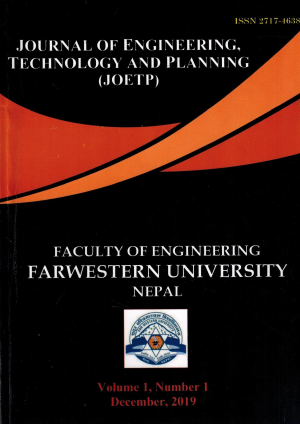Exploring Socio-cultural Impacts of Ecotourism in the Annapurna Conservation Area, Nepal
DOI:
https://doi.org/10.3126/joetp.v1i0.38245Keywords:
Ecotourism, Socio-cultural impacts, Community, Settlements, Annapurna Sanctuary TrailAbstract
Ecotourism is supposed to be culturally respectful and an agent to enhance indigenous values, culture and heritage conservation through ethical and responsible approach of development. Acknowledging its potential benefits, developing countries like Nepal have promoted ecotourism as a benign and alternative strategy to attract foreign capital particularly by showing indigenous culture, heritage and environmental resources to the tourists. However, in reality, ecotourism has also demonstrated its short-comings that have caused severe environmental damage and socio-cultural problems. In this regard, by adopting multiple techniques of data collection such as survey with households, interview with key informants, participant observation and archival study, this paper examines the role of ecotourism in the conservation of local culture and heritage, and explores the perceived socio-cultural impacts of ecotourism development in the Annapurna Sanctuary Trail in Annapurna region. Research Findings reveal that ecotourism has induced both positive and negative consequences on the local culture and social life. On one hand, social facilities and infrastructure such as road, school, health post, drinking water, and tele-communication have been improved in the settlements along the trail. On the other hand, local culture, traditions and architectural heritage have been threatened by the tourism development. The key objective of ecotourism i.e. conservation of local heritage and culture, is not fully achieved, however local people perceived significant benefits in terms of conservation of biodiversity and economic benefits. The lack of control on the construction of private buildings, and no specific attention on the vernacular architecture, and local cultural practices has pushed communities towards crisis of cultural identity. It recommends to the relevant stakeholders, specifically the government, for adopting comprehensive policies of ecotourism development particularly to promote cultural heritage conservation and sustainability in the region.
Downloads
Downloads
Published
How to Cite
Issue
Section
License
Copyright © Faculty of Engineering, Far Western University

